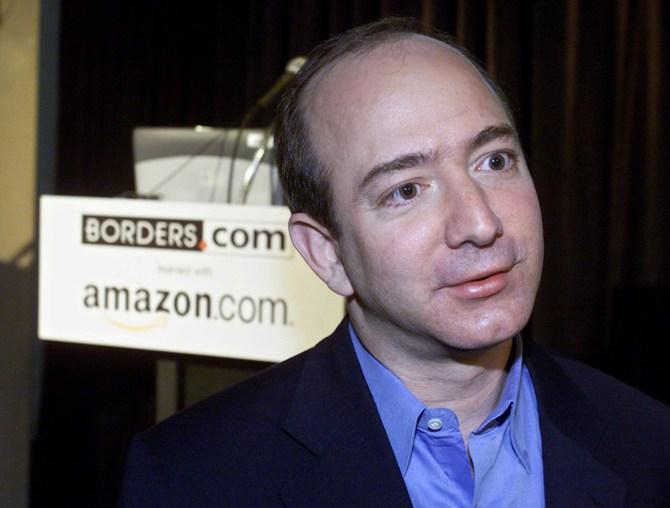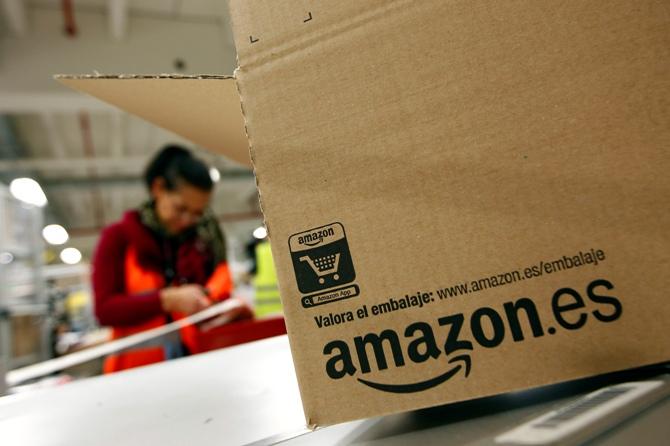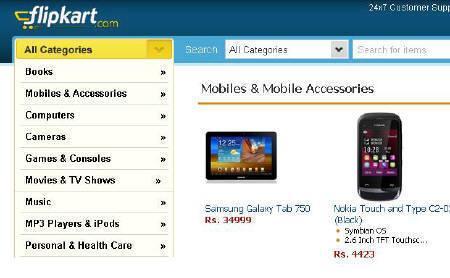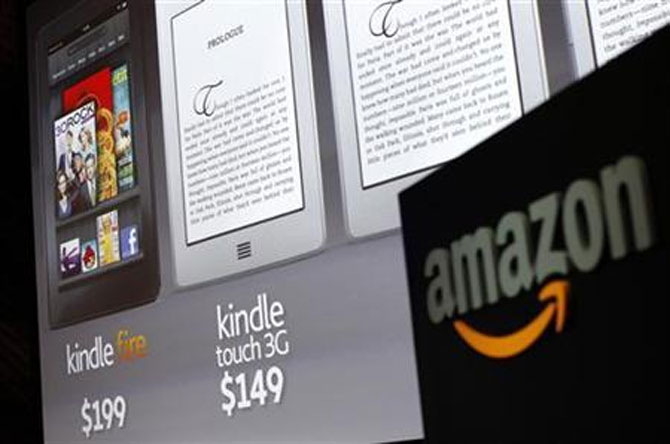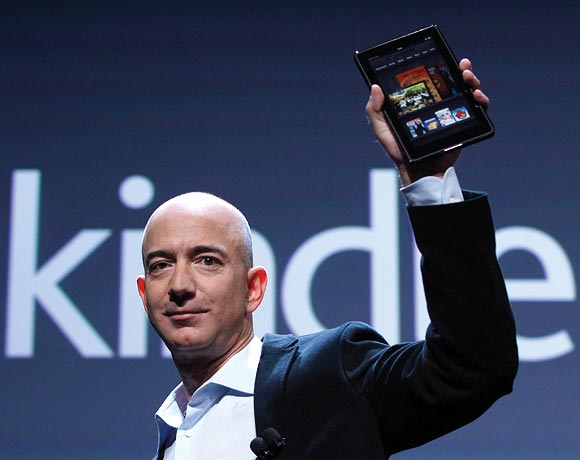 | « Back to article | Print this article |
Elephant Amazon strides quietly as rivals scurry around
Back-to-back announcements on fast delivery, product assortments, new categories, exclusive launches, deep discounts and claims of the revenue of top e-commerce companies touching the $1-billion mark make the online retail space akin to a war zone.
Merger talks, for instance those relating to Flipkart and Myntra, only add to the red-hot competition.
While analysts term this the Amazon effect, companies dismiss competition as if it does not exist.
Click NEXT to read further. . .
Elephant Amazon strides quietly as rivals scurry around
Next month, US e-commerce giant Amazon is set to complete a year in India.
Amit Agarwal, vice-president and country manager, says the company is readying internal goals and targets for this market.
On competition from Indian players such as Flipkart and Snapdeal, who have been around for much longer, Agarwal says, “We don’t get distracted by competition,” citing about 20 years of global experience.
“We are aware of competition, but we want to be the world’s most customer-centric company.”
Click NEXT to read further. . .
Elephant Amazon strides quietly as rivals scurry around
With 15 million products across 24 categories in only 11 months, Amazon doesn’t really have reasons to worry.
However, with a similar assortment size and about 70 categories, Flipkart, India’s leading e-commerce company, is on an aggressive expansion path.
The company is in advanced talks for a merger with online fashion retailer Myntra, a move that might force Amazon to sit up and take notice.
Among other categories, Amazon offers apparel and fashion ranges, too, a fast-growing segment in India.
Click NEXT to read further. . .
Elephant Amazon strides quietly as rivals scurry around
Sachin Bansal, co-founder and chief executive of Flipkart, also dismisses competition, refusing to even mention that word, or Amazon, for that matter.
“Our focus is on creating the best online shopping experience for the customer. . . When it comes to innovation in supply-chain, we are known as leaders and our technology team excels at solving problems typical to the Indian ecosystem.
“That is our strength,” he says.
Access to the largest customer base and the kind of data this gives the company are Flipkart’s unique selling points, he adds.
Click NEXT to read further. . .
Elephant Amazon strides quietly as rivals scurry around
Flipkart has a registered user base of 18 million, against about 20 million for Snapdeal. Amazon didn’t specify the size of its user base, saying these were early days.
Snapdeal, present across about 500 categories and 100,000 sellers, could give tough competition to Amazon, says an analyst.
Modelled on Chinese marketplace company Taobao (of the Alibaba group), Snapdeal is a bit more forthcoming on competition.
“More competent players will help push the envelope,” says Kunal Bahl, co-founder and chief executive.
“Assortment is the real differentiator, followed by value and convenience,” he adds.
The company, which has seen the number of its sellers grow from 30,000 to 100,000 in a year, believes it’s the sellers who will bring assortments.
Click NEXT to read further. . .
Elephant Amazon strides quietly as rivals scurry around
Amazon’s Agarwal agreed.
“Having the product is most important.
“Without the right product, low prices are meaningless.”
As for the Indian market, consumers here were similar to anywhere else in the world, he said.
On fast delivery, another parameter all e-commerce companies claim to excel in, Amazon says it is making available about 230,000 products for next-day delivery across hundreds of pin codes in India.
Click NEXT to read further. . .
Elephant Amazon strides quietly as rivals scurry around
“More than 60 per cent of our customer demand is already eligible for next-day shipping, on products fulfilled by Amazon,” says the company’s India head.
He terms 100 per cent fulfilment of next-day delivery “aspirational” and “nirvana”.
Flipkart and Snapdeal are equally vocal on single-day delivery.
“We are the only players to offer services such as In-a-Day Guarantee and Same Day Guarantee Delivery at scale,” says Flipkart’s Bansal.
“Even if we are not the least expensive, Flipkart customers appreciate the value they are getting for the service and selection.”
Click NEXT to read further. . .
Elephant Amazon strides quietly as rivals scurry around
Another American e-commerce company, eBay, which has been operating here for nine years, is relying on its range of live listings at 1.1 million and about 2,000 categories.
Deepa Thomas, e-commerce evangelist, eBay India, says, “Both horizontal and vertical players are competing for a larger pie of the market. We welcome it, as it will only help expand the market.”
On whether Amazon will look at any acquisition in India in the face of growing competition, Agarwal says, “We are excited by the current focus.
“Anything outside of that, we don’t want to speculate on.”
Though it’ll soon be a year-old in India, the company says it is still “Day 1”.
